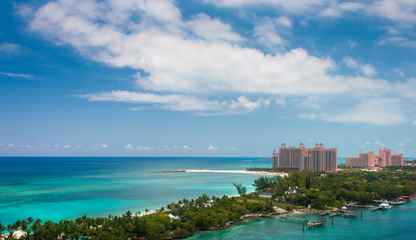When is the Cheapest Time to Fly to Havana?
December to May is considered peak season for visiting Havana as temperatures are warm but dry. In addition, the city also hosts its jazz, salsa and cigar festivals. October and November are good off-peak times to fly to Havana, as the city is quiet, and you can enjoy the annual international ballet festival, the Havana Art Biennale. In the less popular rainy season of July and August, the weather can be unpredictable, but airfares may be cheaper.
When is the Best Time to Book your Flight to Havana?
Havana’s an increasingly popular tourist destination, so book as far in advance as you can to have the best choice for cheap flights to Havana, ideally at least two months before your departure date. Netflights compares prices across hundreds of routes and airlines, so you can save money on airfares. If you aren’t tied to particular dates, last-minute flights are often available to Havana, and you may also be able to get a bargain, especially if you fly out of season.
Flying to Havana Jose Marti Airport HAV
Havana Jose Marti Airport (HAV) is Cuba’s biggest and busiest airport, serving more than four million passengers per year. Named after the Cuban poet Jose Marti, it’s located nine miles (15 kilometres) southwest of Havana in the town of Boyeros.
Virgin Atlantic operates direct flights to Havana from London Gatwick. You can also fly to Havana from lots of other major airports in the United Kingdom, including London Heathrow, Birmingham and Edinburgh. Air Canada, Air Europa, British Airways, Air France, Eurowings, Iberia and KLM all operate indirect flights to Havana with connections in cities like Dublin and Madrid.
On Arrival and Getting Around the Airport
Havana Jose Marti International Airport (HAV) has four terminals. Terminal 3 handles international flights and is the largest and most modern. A bus service is available to take you between the terminals if you’re transferring to a domestic flight. Arrivals and baggage reclaim are located on the lower level of the terminal, while check-in counters and departures are on the upper level. You’ll find currency exchange desks and ATMs on both levels of the terminal. Other facilities for passengers include a pharmacy, VIP lounges, express check-in and a children’s play area in addition to several cafes, shops and restaurants.
Getting to the City Havana Jose Marti Airport HAV
If you don’t have a shuttle prearranged with your hotel, the best way to get to the city centre is by taxi or a car hire. Taxis can be found in front of the terminal building; a ride to downtown Havana takes around half an hour. Agree the fare with the driver before travelling as not all taxis have or use their meters. You can find car hire agencies in the arrivals hall or the outside parking area. It’s best to book your car in advance, especially during the high season. Havana Airport isn’t served by public buses. The nearest bus station is in the Vedado District, located about nine miles (15 kilometres) from the airport, so you’ll need to take a taxi to reach it.
Why Visit Havana?
Havana is a vibrant, artistic city that comes alive with festivals and cultural events all year round. It’s popular with British holidaymakers, often as a first or final stop on the way to Cuba’s beach resorts. If you love music and dance, you’ll be in your element in Havana. The city is home to dozens of salsa schools and hosts an international salsa festival with dance workshops, parties and shows in April. A visit to see the prestigious National Ballet of Cuba perform at the city’s Gran Teatro is a must. You can also enjoy jazz and traditional Cuban music at bars and cafes all over the city.
By day, explore the streets of historic Habana Viejo (Old Havana), where you can admire the city’s stunning baroque architecture and visit hip boutiques. The cobbled Calle Mercaderes is home to a number of quirky small museums, restored shops and restaurants. Later, wander along the Malecón, Havana’s atmospheric oceanfront boulevard, before heading up to the rooftop bar at La Flauta Mágica to relax with a mojito by the pool.
Don't Forget Before you Fly
You’ll need to get a tourist card before travelling to Cuba; for more information and advice, contact the Cuban Embassy. The local currency is the peso, and because it isn’t traded internationally, you can only exchange it when you arrive at the airport or at a bank. Keep in mind, too, that there are two different versions of the currency in Cuba: the Cuban National Pesos for locals (CUP) and the convertible peso for visitors (CUC). It’s best to bring British pounds to change into pesos. You should also check whether you need any immunisations before travelling to Cuba.












